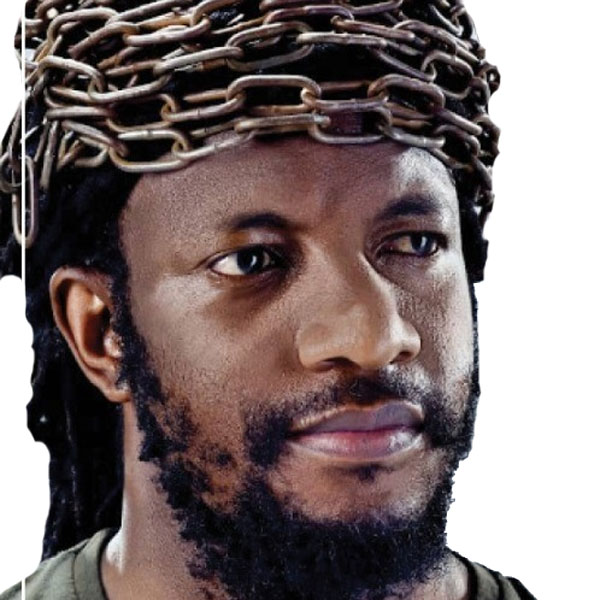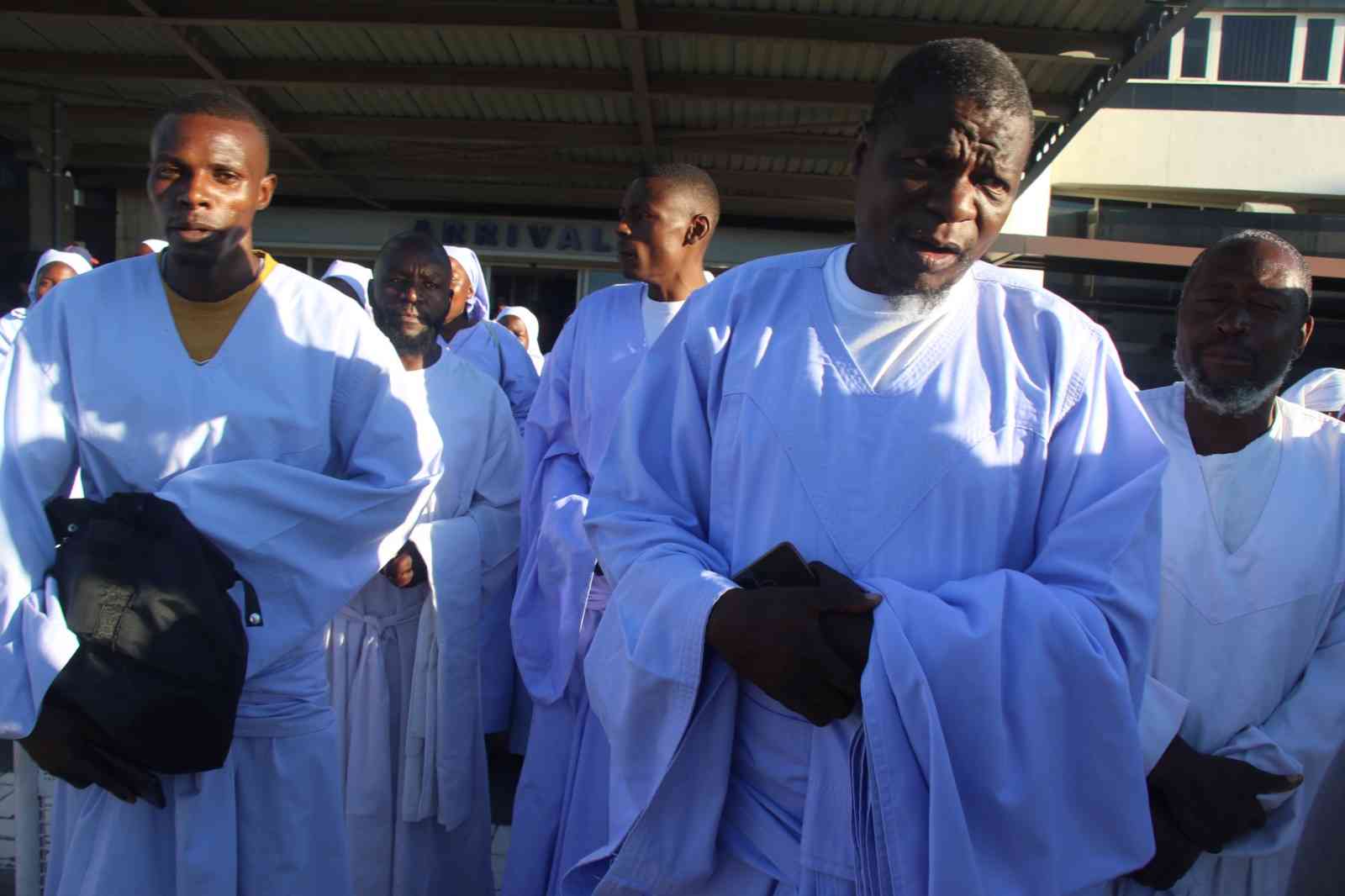
By Sindiso Dube
For an artiste who barely talks about his music and life, Winky D has managed to mirror his thoughts and send a much louder message through his performance outfits, in spite of his consistent silence.
His recent live concert at the Gara Mumba Iwe got people talking, like always.
Clad in a red flight suit resembling popular television series Money Heist — characters, Winky D and his Vigilance Band gave people another bone to chew over what message they are sending through the outfits.
Most popular on Netflix, Money Heist also known as La Casa de Papel — is a Spanish crime television series created by Alex’ Pina.
Winky D’s costume last Wednesday night resembles the gear worn by robbers throughout the series — a realistic Salvador Dali mask and red jumpsuit to hide their true identies.
The costume is not simply a disguise for a crime, but it actually serves as a physical symbol of the show’s theme, which is about “the resistance, indignation, and scepticism” towards “the system”, as the Professor says in the series opening episodes.
In the second episode of Season 3, the Professor is seen schooling the thieves about how the costume was being used in protests all around the world. He mentioned places like Rio de Janeiro, Buenos Aires, Colombia, Rome, Paris, Hamburg, and Saudi Arabia, albeit no evidence of what he told them.
- Chamisa under fire over US$120K donation
- Mavhunga puts DeMbare into Chibuku quarterfinals
- Pension funds bet on Cabora Bassa oilfields
- Councils defy govt fire tender directive
Keep Reading
However, bringing the case closer to home, we have seen political parties such as the MDC and South Africa’s Economic Freedom Fighters (EFF) wearing such gear when protesting against their governments. EFF MPs have gone further by wearing red suits in Parliament.
Winky D has been sending a message of resistance in a country characterised by corruption, maldministration and a dwindling economy with songs such as 25, Njema, iJipita, Siya So and Gafa Mu Parliament, among others.
The outfits designed by local designer Jay-Tee of SOG Clothing are now dubbed “Bella Ciao” and would be available on the market soon.
Bella Ciao meaning Goodbye Beautiful is an Italian folk song sung in Money Heist. The song was sung by the anti-fascist resistance movement in Italy between 1943 and 1945. The author of the lyrics is unknown — the music and spirit of the song are based on a folk song sung by rice-weeders on the River Po basin in the early part of the 20th century.
In the past Winky D has portrayed himself as Extraterrestrial — a hypothetical or fictional being from outer space, insinuating that he is the best dancehall chanter and no one is on the same level with him.
At his last album launch Njema, the Zimdancehall sensation came dressed in the signature red and white prison garbs. Winky D’s outfit sent a clear message carried in the album. Njema means handcuffs.
The albums portrays Zimbabwe and its people to be under an imagined prison and handcuffed.
Quizzed about the idea and the message behind Winky D’s outfit, Jonathan Banda, the artiste’s band manager, responded: “There is no message behind the outfit, it’s all about art.”
“Art doesn’t start in the studio and end on stage, you have to be more creative and entice your fans who have been behind you all the way and the fans loved it.
“It’s a way of giving back the love. Some might want to take a radical approach of resistance from the series Money Heist, but this is all about art, art is not rigid.”
Winky D before his album was launched, got in trouble with the authorities after they reportedly banned state-controlled radio stations from playing his new album, an allegation they denied.
The chanter has also turned spiritual by wearing a garment for his song featuring Vabati VaJehova, which calls upon the guardian angel to bring sanity and end the sufferings of many.
In the video, the choral group is dressed in white garments symbolising purity while Winky D is in all black, could this be another sign of resistance in a gospel song tucked in an album titled Gombwe, a tribal guardian spirit?
If we could turn back the hands of time, Winky D was referred to as the “Ninja President” he was known for wearing a Ninja costume at his live shows and had his legions of followers named “Ninjas”.
The costume symbolised his power over other chanters “slaying them with his sharp-edged lyrical sword”.
This is the same Winky D who for years kept his dreadlocks a secret for reasons only known to himself and God, or whatever or whoever.










